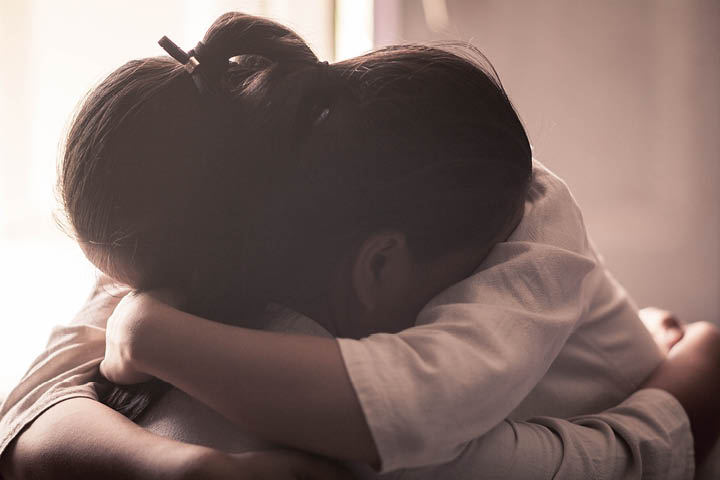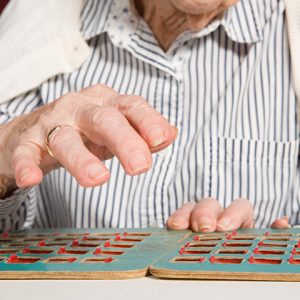 Goodbyes are hard. We simply don’t want to say goodbye to the people we love. And saying goodbye when a friend, family member or loved one approaches end-of-life can feel like an impossible task. There are ways to prepare for saying goodbye, and if you practice now in your own way, it can help soften the memory of loss later.
Goodbyes are hard. We simply don’t want to say goodbye to the people we love. And saying goodbye when a friend, family member or loved one approaches end-of-life can feel like an impossible task. There are ways to prepare for saying goodbye, and if you practice now in your own way, it can help soften the memory of loss later.
- Prepare early. Take time to think about what you want to say and who you want to say it to. You’ll have different goodbyes for different circumstances. Sometimes the ending is a death, sometimes it’s another type of parting.
- Don’t delay saying what you mean until the last moment.
- Expect emotions. You might cry, and that’s OK. Or sometimes we laugh because we can’t cry, at least not yet. Expect your emotions; they have a way of catching you off guard.
There are many ways to say goodbye. Some of the most common are:
- “I love you.” These three words are one of the greatest phrases to use in goodbyes. Practice saying them.
- “I forgive you.” or “I’m sorry.” These are powerful goodbye words and can transform you and the person who receives them for a lifetime.
- “Thank you” is another comforting goodbye phrase. When it’s used within a significant, shared story, it honors what made your relationship unique and meaningful.
- “I understand you need to go.” You may not be able to tell your loved one it’s OK for them to go, but perhaps you can tell them you understand they need to go. It will never feel OK to you. But sometimes people are waiting for a cue that they can go. People who are dying may not feel they can pass if they are too worried about how the family will cope without them.
Sometimes people say, “We don’t do goodbyes, we do ‘See you laters.” That counts, as long as you all really know what you are saying, and you’re not skirting around an important message. Goodbye has the etiology of meaning, “God be with you,” so saying goodbye is bestowing a blessing. And for a person whose faith tradition anticipates seeing one another again after a parting or after a death, “see you later” rings true.
Take hints from your loved one. You can ask, “Is there anything that would be most important to you to talk about today?” Take your cues from your own inner self. What do you most need to hear? That may be the best clue about what you might need to say.
Sometimes the most touching gesture you can offer are no words at all—just being there, a hug, holding a hand, rubbing a shoulder, crying.
Saying goodbye is an important signal to your loved ones and recognizes an ending point in your journey together. It also signifies we can say goodbye and still be all right. We’re now at the fork in the road, and it’s OK to travel separately because we’ve each had the pleasure of traveling together for a time that mattered. It’s a way of saying, “Thank you, I’ll be OK, and you’ll be OK.” Your words may be an essential gift of peace to someone who is worrying if you can handle their leaving.
Are you concerned about saying goodbye too soon? If you say your heartfelt goodbye and see your loved one again, it’s a gift.
About Hospice of the Red River Valley
In 1981, Hospice of the Red River Valley was founded on the belief that everyone deserves access to high-quality end-of-life care. We fulfill our nonprofit mission by providing medical, emotional, personal and spiritual care, as well as grief support to our patients, their families and caregivers during a tender time in life. Our staff helps those we serve experience more meaningful moments through exceptional hospice care, 24 hours a day, 365 days a year, wherever a patient calls home. The organization serves more than 40,000 square miles in North Dakota and Minnesota, including in and around Bismarck, Detroit Lakes, Devils Lake, Fargo, Fergus Falls, Grand Forks, Lisbon, Thief River Falls, Valley City and many more communities. Hospice of the Red River Valley offers round-the-clock availability via phone, prompt response times and same-day admissions, including evenings, weekends and holidays. Contact us anytime at 800-237-4629 or hrrv.org.





